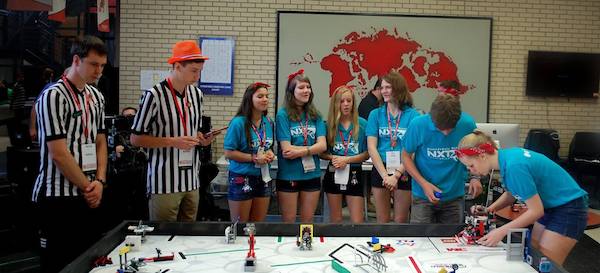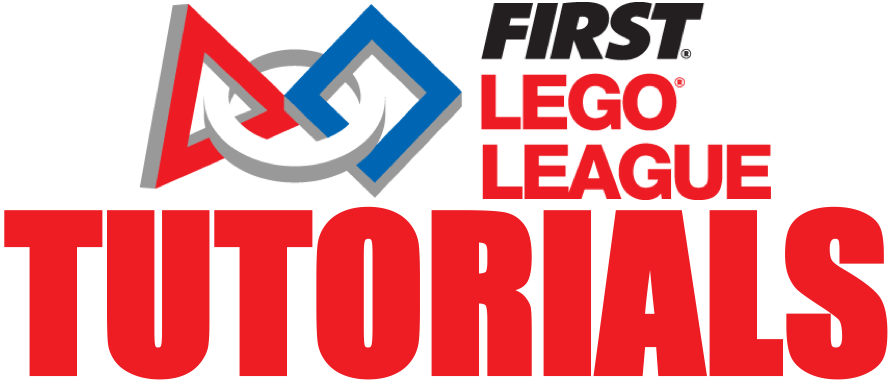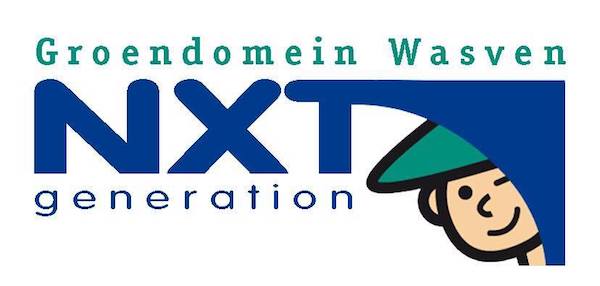Formal, Non-Formal & Informal Learning

There are different ways to learn. As a teacher and coach of a FIRST LEGO ® League (FLL®) team, I’ve seen and experienced this over the past several years. Even within the FIRST ® program you can learn in different ways.
FLL® teams are formed within scout programs, technology clubs, youth organizations and voluntary organizations. However, most commonly, they are formed as part of schools, after school programs and home schools. I discovered that diverse teams (in terms of age, level and interest) often get more out the FLL® program than teams with a homogeneous composition. Perhaps this is because team members learn with and from each other, and often learn in a more informal way.
As I stated in the introduction there are many different ways of learning. According to “van den Dungen & Smith, 2010” one can divide learning into three different types, namely: formal, non- formal and informal learning. The terms, formal, non-formal and informal learning are used by the OECD (Organization for Economic Co-operation and Development), as well as researchers and practitioners around the world.
Formal Learning is organized learning which is legally regulated and meets quality requirements with fixed targets. It ends with a nationally recognized diploma or certificate. Professionals who have received training teach the classes. Schools, colleges and universities fall in this category.
Non-formal Learning is often less organized, and does not have to fit in a program. A qualified teacher or a coach with more experience can guide this type of learning. Although the program is not standardized, and has no certification or a diploma, the program is very rewarding and the student learns individual skills and competencies. Scouting or sports groups are a good example. In non- formal learning, enthusiasm, fun and intrinsic motivation are often the driving force behind participation.
Informal Learning is learning which is generally not organized. It occurs anywhere including in the family, at work, during leisure time, and in society. We learn a lot and frequently. It is spontaneous and casual, and often the learning happens together with others. We pick up ideas from peers, we ask for help, and we get feedback.
Informal learning is increasingly seen as an important way of realizing formal and non-formal learning. The teacher is just someone with more experience like a parent, grandparent or a friend. From the student’s point of view, this learning is non-targeted. The learning outcomes are not recorded and are not usually visible to the student. An example of informal learning is a father who teaches his child fishing.
The FLL® program fits, in my opinion, between non-formal and informal learning. The program itself is more non-formal because it has been developed and carried out by FIRST ® in a more or less organized setting. With the FLL® program, children develop knowledge and skills, but also other skills such as individual and social competencies. The team members are often inexperienced, and are accompanied by a qualified teacher or a coach with more experience (such as a youth leader, volunteer or parent). The FLL® activities are planned, but are not always structured within conventional time formats or school subjects. Participation in the program is generally voluntary. The setting is mostly outside the classroom, and more informal. The learning outcomes are not recorded, measured or assessed.
When the program further proceeds, the students are learning more in an informal way. They get help from professionals and experts in the field; they go on excursions or investigate and learn spontaneously and accidentally from one another. They work together, care for each other and look with different eyes at their environment. They are assertive; learn to deal with setbacks and opinions of others. They learn to establish contacts; enhance their perseverance and give attention to non-verbal behavior. They also devote more of their free time to this project to find material, and arrange or organize things. But above all, they have a good time and they enjoy what they are doing. They have FUN. The coach or mentor is at this stage often only a spectator, someone who facilitates.
When I was a coach, I often got feedback from parents saying that they were grateful that their children had participated in FLL®. The children themselves were glad they had been a member of an FLL® team. They said that they found it fantastic that they had been introduced to engineering and science. They were happy that they now knew how to build a robot and program one.They also developed more spatial awareness. They also loved that they had come to know more about certain subjects, and at the same time had explored the core objectives of primary education. But what they often found even more valuable and important was what they had learned in an informal way. The things they learned are not directly measurable or visible. As the children grew older they and their parents realized increasingly what they had learned and what the impact that FLL® had on their lives.
This is why I’m still excited about the FIRST ® program. I’m more and more convinced after all these years that this program should not be seen or used as a formal learning tool that must be guided by professionals. It is in my opinion that it is not a program that should be restricted by age, level, or certain characteristics. The FIRST ® program is for everyone and is an important link between formal, non-formal and informal learning. It is also a connection to the conceptual framework of life long learning. The FIRST ® program is more than just learning skills or abilities. It also develops motivation, experience and talent. As a person you need all of these competencies and you need to always continue to develop and improve them, not only as a team member, but also as a coach/mentor, expert, professional, volunteer, parent, teacher, CEO, etc.
Note: Van den Dungen, M. & Smith, W. (2010), Multiple paths to professionalization. Heerlen: Ruud de Moor Centre - Open University.

 Resources
Resources


